23 Sep 2014
How To Cope When Your Child Is An Addict
Having an addict in the family is never easy. When that addict is your child, whether a teen, young adult or fully-grown adult, the impact on you as the parent is devastating. First you feel immense guilt and pain because your child is suffering. You may also face a lack of support from your loved ones. Finally, your mental, emotional and physical health may begin to deteriorate. How do you cope with these issues after you have tried to get help for your child?
Living With Pain And Guilt When Your Child Is Addicted
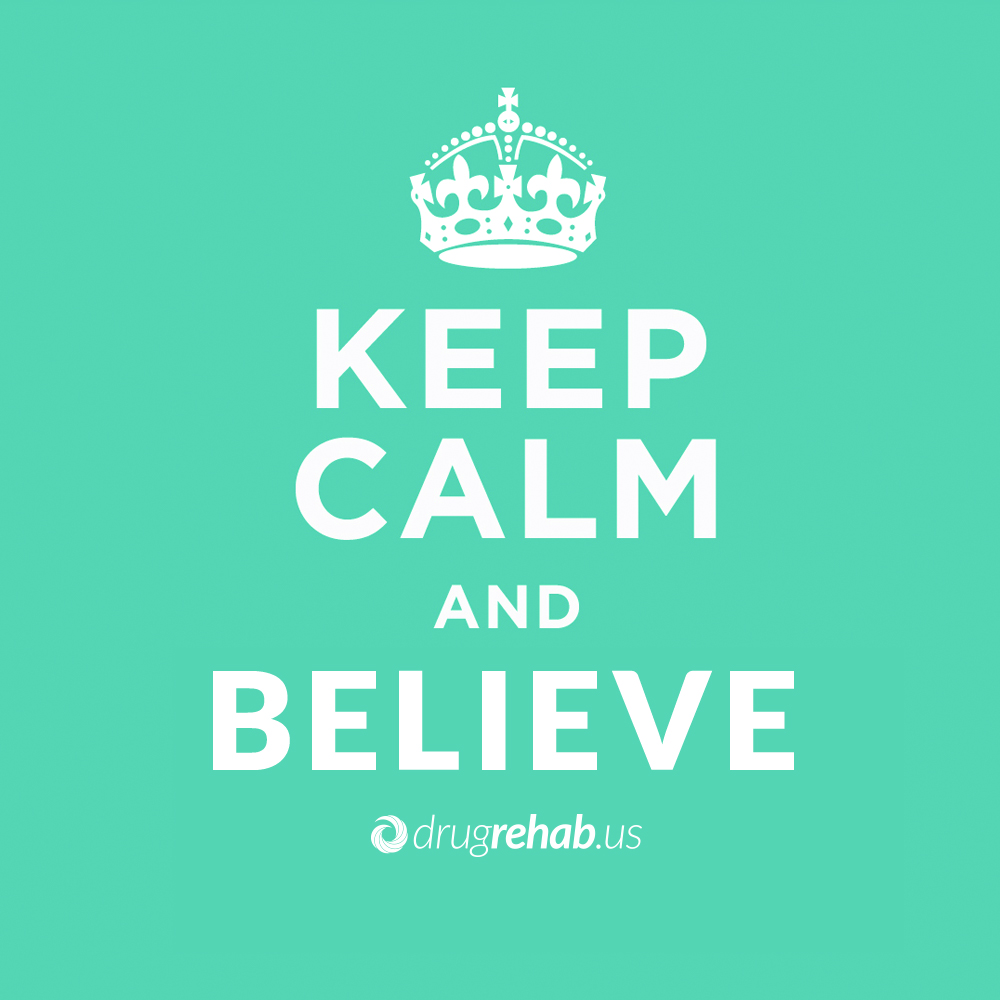 It is only natural to experience a sense of extreme guilt and feeling as if you have failed your child in some way. Seeing your child suffer can also cause you a tremendous amount of anguish and emotional pain. If you have done your utmost to help your child get into recovery, if you have expended your resources, you have done what you can. Remember that your child is capable of making decisions and his poor choices are not your fault. It is normal to still feel guilt and pain, but there are ways to cope.
It is only natural to experience a sense of extreme guilt and feeling as if you have failed your child in some way. Seeing your child suffer can also cause you a tremendous amount of anguish and emotional pain. If you have done your utmost to help your child get into recovery, if you have expended your resources, you have done what you can. Remember that your child is capable of making decisions and his poor choices are not your fault. It is normal to still feel guilt and pain, but there are ways to cope.
Realize that extreme feelings of guilt and pain are signs of a negative attachment to your child. Recognize this attachment and how it is harming you. Accept that your child makes his own choices and that you cannot force him to stop using drugs or alcohol. Focus your energy on yourself and on the positive relationships in your life. If your spousal relationship has been damaged because of your child’s addiction, work on it. Redirecting your focus will help you detach from negative and unhelpful emotions.
Getting Support For Family Addiction
A major issue that parents of addicts face is a lack of support. If your child had another kind of medical disease, like cancer, you could expect to receive all kinds of support from family and friends. Parents of addicts, however, often find their loved ones have turned away, thanks to the lingering stigma attached to the disease of addiction. Support is essential to coping, so find it where you can. Look for other parents who know what you’re going through. Support groups for loved ones of addicts can be a great resource. You might also work on those closest to you. Talk to your more supportive loved ones and explain that you need help and love.
Taking Care Of Yourself When Your Going Through The Pain Of Your Child Being An Addict
You can only help others if you are properly cared for and are well. Trying to help your child and suffering from the guilt and other negative emotions his issues have created, your own self-interests have probably fallen to the bottom of your list of things to do. You must find the time to take care of yourself if you hope to be happy again, to be able to help your child when he is finally ready for it or to re-establish a healthy relationship with your spouse. It may seem selfish, but find time to do something you enjoy, something just for you. Make the time to prepare healthy foods for yourself and include exercise or meditation in your day. These small gestures will make you better able to cope with your addicted child.
Having a child who is seriously ill is one of every parent’s worst nightmares. With the disease of addiction the feelings of helplessness and guilt can be especially powerful. If you can dissociate yourself from those negative feelings, find support and take care of your own health, you can cope with this. You will even be able to help your child when he decides it’s time to get clean.
Read More: What Can You Do When You Feel Helpless With Your Child’s Addiction? And Help Your Child Overcome Their Addiction!
If You Need Help With Your Child’s Addiction – Call Us Now – We Are Here For YOU
Overdose deaths caused by heroin and other opioid drugs are on the rise across the U.S. Opioids include illegal heroin, but also many powerful and addictive prescription painkillers. All of these drugs are easy to abuse, get addicted to and overdose and die from using. An injection with a drug called Naloxone can reverse such an overdose and prevent a tragic death. If you have someone in your life addicted to or abusing opioids, you need to know about this life-saving overdose antidote.
When Naloxone Can Be Used
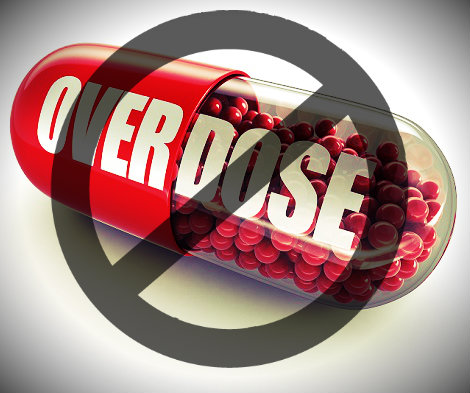 Naloxone is a drug that is related to opioids and that is capable of reversing the effects of certain opioids on the body. It can be used after surgery to reverse the effects of opioids given for pain and sedation. It can be given to infants born with a dependency on opioids. A mother’s drug use causes this and the Naloxone helps to relieve the infant’s withdrawal symptoms. For someone overdosing on an opioid, Naloxone can be injected with a needle or with an auto-injector, called Evzio. The auto-injector is similar to devices used for severe allergic reactions and can be used by anyone without medical training.
Naloxone is a drug that is related to opioids and that is capable of reversing the effects of certain opioids on the body. It can be used after surgery to reverse the effects of opioids given for pain and sedation. It can be given to infants born with a dependency on opioids. A mother’s drug use causes this and the Naloxone helps to relieve the infant’s withdrawal symptoms. For someone overdosing on an opioid, Naloxone can be injected with a needle or with an auto-injector, called Evzio. The auto-injector is similar to devices used for severe allergic reactions and can be used by anyone without medical training.
Naloxone Saves Lives
Naloxone has been successful in saving lives. The Centers for Disease Control and Prevention (CDC) reports that thousands of doses of Naloxone have been distributed in community groups dedicated to preventing overdose deaths. Because of this distribution, more than 10,000 people have been saved from life-threatening overdoses. Community groups, first responders and law enforcement officers are being given injectors in greater numbers to administer life-saving Naloxone.
Can Anyone Get Naloxone?
The important question for anyone who cares about an opioid drug abuser is about access to the overdose antidote. Emergency responders and police have them, and injection devices are easy to use. Can anyone get access to a Naloxone injector? Should you carry one with you to save your loved one’s life in the event of an unintentional overdose? Many advocates for greater access to the overdose antidote say yes.
Community programs are already working toward getting more Naloxone injectors into the hands of those who need it. It is a prescription medication, but it can be prescribed to anyone who is at risk of having an overdose. The reach of such community programs, however, is currently limited. These programs are run mostly through needle exchange programs and target inner-city heroin addicts. More access is needed in greater areas and for people abusing prescription painkillers, not just heroin. Support for expanding access is high, but funds are low.
To get a Naloxone injector for yourself or a loved one, you need to either find a community program near you that will distribute it to those in need, or find a physician willing to write you a prescription for one. If you don’t know where to start, speak to your primary care doctor for more information or referrals. Also keep an eye out for non-prescription Naloxone. Because of the great need for this life-saving drug, the Food and Drug Administration (FDA) is considering the development of an over-the-counter alternative.
Opioid addiction is a terrible disease. It can hook anyone and it can do so quickly. Getting over an addiction to an opioid is extremely challenging. Anyone abusing these drugs is at risk for an overdose. Dying from an overdose can even occur with the first use of one of these drugs. If you know someone who abuses any kind of opioid, the overdose antidote should be on your radar. Look into the possibility of getting access to the injector. It could save the life of someone you love.
19 Sep 2014
Speaking Up About Addiction
Addiction is often a silent disease. While no one is ashamed to talk about having arthritis or high blood pressure, the disease of addiction has long carried a terrible stigma. Those struggling with addiction are too often looked upon, by others as well as themselves, as weak, morally inferior and lacking in willpower. It is difficult to speak up and speak out about the challenges of this disease, but when we do, we can make real, positive changes. Only with awareness and recognition will more addicts get the help they need, while future addictions are prevented.
The Power Of Awareness
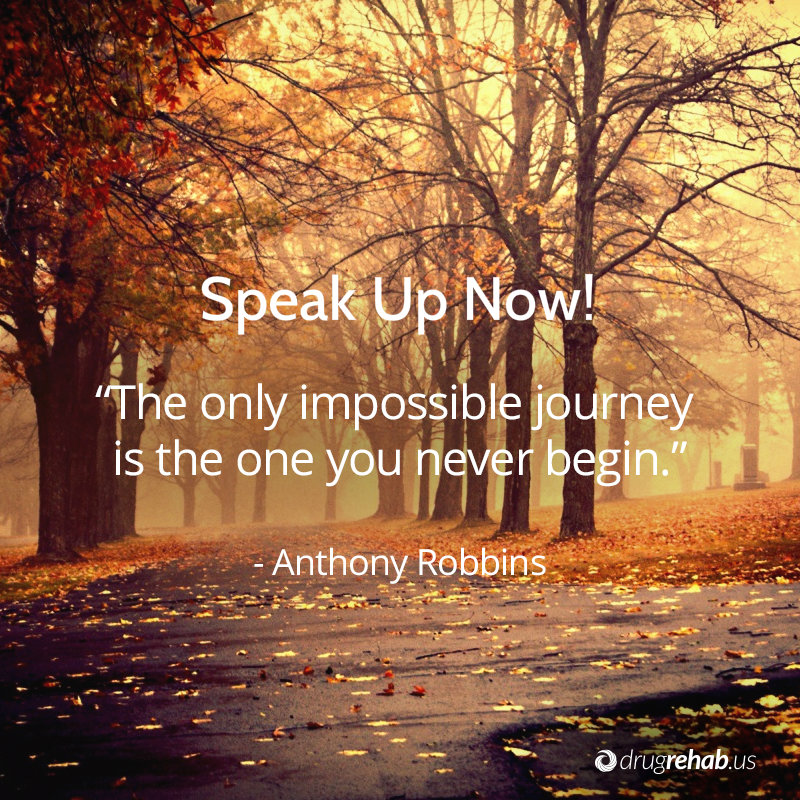 The expression goes that knowledge is power and it carries a great amount of truth. When something like addiction remains shadowed and hidden, ignorance is allowed to grow. When someone knows nothing about addiction, the lies and misinformation seep in along with assumptions and prejudices. Someone who is ignorant about addiction may not be aware that a friend, coworker, or even a family member is struggling with the disease.
The expression goes that knowledge is power and it carries a great amount of truth. When something like addiction remains shadowed and hidden, ignorance is allowed to grow. When someone knows nothing about addiction, the lies and misinformation seep in along with assumptions and prejudices. Someone who is ignorant about addiction may not be aware that a friend, coworker, or even a family member is struggling with the disease.
Raising awareness about addiction can be powerful. Spreading the word about how damaging this disease can be is a great way to prevent people from abusing substances in the first place. Prevention is the best way to help spare people from the pain and suffering caused by addiction. Raising awareness can even help motivate other people to help make a difference. Even for those who never had an interest in drug use or drinking, learning more about addiction can inspire anyone to get involved with helping others.
Awareness can also make big changes over the long term. It might feel as if one person, or one small group, speaking up and talking about addiction makes little difference. The truth is that it can have a snowball effect. Your efforts to reach others inspire the next person, and the next person. When enough people start speaking up, lawmakers start to listen, as do organizations with the means to fund research and treatment. The act of speaking up, even by one person, can be powerful.
Sharing Stories Of Addiction
If you have been impacted by addiction, whether your own or someone else’s, sharing that story is one important way to speak out and raise awareness. The more we speak about addiction and the more we hear about it, the more it loses its mystery and stigma.
Several organizations encourage and host events that allow you to get your story out there:
- The National Council on Alcoholism and Drug Dependence has named September National Alcohol and Drug Addiction Recovery Month. This event encourages people to learn about addiction and recovery as well as treatment options.
- The Substance Abuse and Mental Health Services Administration supports October as National Substance Abuse Prevention Month and provides ideas and events for people to share their stories and to learn more about addiction.
- The U.S. Army supports veterans battling drug addiction by encouraging everyone to learn more about addiction, treatment and recovery. It also advocates for celebrating the successes of those who are in recovery and sober.
When it comes to a disease laden with stigma, the only way to banish the shame and ignorance is to speak up. If you have battled addiction, if you have seen a loved one laid low by this disease, or if you simply care about the issue, speak up, spread awareness and help others learn more about the disease of addiction!
Read Our Other Empowering And Inspirational Posts
Overcoming Addiction Is Worth It & So Are You! – Let Us Help You Take That First Step – Call Us Now!
18 Sep 2014
Why Addicts Lie
If you have an addict in your life you have been through some trying times. Your addict has a disease, but it’s a tricky one. She may cheat on you, lie, neglect you, steal from you or even hurt you. For those in close relationships with an addict, lying is one of the most hurtful behaviors to experience. You expect honesty in your intimate relationships, but addicts lie all the time.
Reasons Addicts Lie
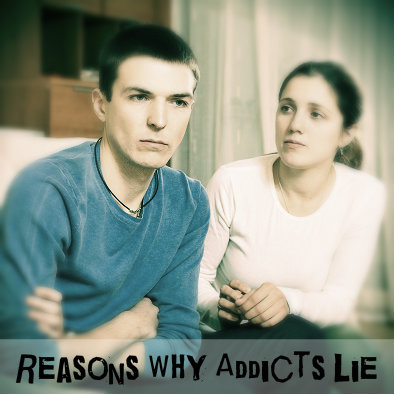 To help you cope with the lying and to learn to forgive and move past it, it helps to understand. Although it may not be right, there are real and valid reasons addicts lie.
To help you cope with the lying and to learn to forgive and move past it, it helps to understand. Although it may not be right, there are real and valid reasons addicts lie.
Addicts Lie To Avoid Confrontations
As you watched your loved one slide into addiction and ruin her life, you probably made numerous attempts to get her to stop. At times you may sound like a broken record and a nag. Maybe the issue has led to increased conflict. The stress of these confrontations is overwhelming and destructive for both of you. While you want to be honest, get the problem out in the open and find a solution, she just wants to avoid your hurt looks and anger. In order to get out of these conflicts and to avoid them, she will tell every lie imaginable.
Addicts Lie To Maintain The Addiction
Lies also help your addicted loved one to perpetuate her addiction. Most addicts are afraid to stop using for a number of reasons. They fear the idea of stopping because they feel like they need drugs or alcohol. The pain and discomfort of detoxing are scary and so is the possibility of failing. The idea of trying to live a sober life, and what that might be like, is even scarier. To keep the addiction going, your loved one will tell many lies. Lying becomes a tool for self-preservation.
Addicts Lie Because Of Shame
Addicts feel a great deal of shame. Although societal attitudes are very slowly changing, there is still a great deal of stigma attached to addiction. Many of us still view an addict as a person who is morally weak. It’s no wonder that addicts feel ashamed of what they do. Especially in sober moments, your loved one feels a huge sense of guilt, embarrassment and shame. Instead of working through these feelings, she uses more and then lies about it. She doesn’t want other people to realize just how badly she is doing.
Addicts Lie Because Of Denial
Denial is a powerful force and most addicts use it to cope with their problems. Despite all the evidence to the contrary, most addicts refuse to admit to having an addiction. They lie because they don’t want to make that admission. Your loved one probably thinks that she is different from other users. She can handle it, she says. She is in denial that her problem is no different from that of other addicts and as a result she lies to you and to herself.
As you cope with having a loved one addicted to drugs or alcohol, realize that her lying to you is not a personal attack. This is her coping mechanism and a rational part of the disease of addiction. This doesn’t mean that you should accept the lies. To help your loved one, you have to push through the falsehoods and ask her to face up to the truth. Don’t let her get away with lies when you catch them, but do provide ongoing love and support.
17 Sep 2014
How To Get The Best Addiction Care
When you finally make that important choice to get help for your addiction you are ready to start healing. Does this mean you should run straight to the first rehab program you find and dive in without thinking or planning? You might be tempted to just get it over with and get started, but if you want to make the most of your experience, and get the best care possible, take some time to plan. With appropriate steps and a little research, you can make sure you are getting the best help possible.
What To Look For In Treatment Programs
 The first thing to consider when you need help for your addiction is getting all the information. You may get lucky if you go with the first program you hear about. But you are more likely to have a positive experience if you take the time to research your options and to select the program that makes the most sense for your needs.
The first thing to consider when you need help for your addiction is getting all the information. You may get lucky if you go with the first program you hear about. But you are more likely to have a positive experience if you take the time to research your options and to select the program that makes the most sense for your needs.
You also want to look for high-quality programs. Look for accreditation and licensing. Ask about treatment methods and whether those the program uses are backed by evidence. Finally, make sure any program you choose has an aftercare program. This is crucial to long-term success.
Covering the basics is important. Next you need to consider variations in programs and which type best suits you. There are residential programs, which are a good choice if you think you need to be monitored around the clock.
You may also choose an intensive outpatient program. This allows you to stay at home and may work for you if you have a strong support system living with you. Outpatient programs are also a good option if you need to keep going to work every day. You should be able to find a program that fits in around your work hours. Whichever type of program you choose, make sure that you will receive a treatment plan tailored to your specific needs.
Make The Most Of Your Rehab Experience
Once you have entered your rehab facility or outpatient program, the real work begins. You now have an important opportunity to work toward sobriety that can last for the rest of your life. To get the best care, make the most of your experience. This means starting with a positive attitude. This is a difficult period of your life, but your attitude can make all the difference. While maintaining a positive attitude is important, you should also make sure your expectations are realistic and your goals attainable. Don’t go into treatment thinking you will come out cured. That is not the point of rehab.
Being in rehab can be a big adjustment. You will have rules and boundaries and make sure you follow them. They are in place for your safety and that of your peers. Follow the rules with a good attitude. As you go through counseling and group support, remember to remain open. Be open to the experience and to hearing what others have to say. If you remain closed off because of embarrassment or shame, you will not get the most out of your sessions.
Finally, cultivate persistence. Making it through rehab or outpatient care requires strength and patience. Getting sober and staying sober aren’t easy tasks. You will face challenges every day for the rest of your life. Never give up, even if you sometimes slide backwards. Persist in the face of your addiction and find the strength to keep going while in rehab and when you have made it to the other side.
Choose The Right Rehab For Yourself Or A Loved One
16 Sep 2014
How Not To Hold An Intervention
Holding an intervention is a powerful way you and others can show an addicted loved one how much you care and want to help. Many addicts have a difficult time facing up to the reality of their own problems. Denial is a strong force keeping most addicts from getting help.
The power of an intervention is in helping the addict see that those who love her are coming together to help. But an intervention can go terribly wrong even with the best of intentions. If you have no idea what to do, consider consulting an intervention specialist to guide you through the process.
Intervention Don’ts
If you decide to go it alone, be sure to avoid these common pitfalls:
- Waiting For The Addict To Hit Rock Bottom: A common misconception is that an addict has to be completely at the bottom before she will accept help. This simply isn’t true. Addicts have an illness, but they are still rational people. You can reason with your loved one and waiting for her to hit bottom is dangerous. If a one-on-one confrontation hasn’t worked, get ready for an intervention instead of waiting for the problem to get worse.
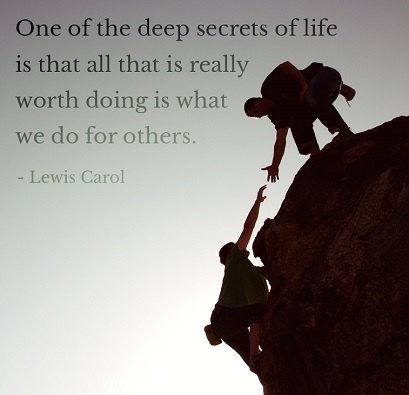 A Spontaneous Intervention: An intervention should never be held on an impulse. While you don’t want to wait too long to hold one, you also need to take some time to plan it. Many things can go wrong during one of these events, but with proper planning you can be ready for any outcome. Get together with the people who will be participating to plan the event. Conduct dry runs and come up with solutions for all the possible negative outcomes you can imagine might happen.
A Spontaneous Intervention: An intervention should never be held on an impulse. While you don’t want to wait too long to hold one, you also need to take some time to plan it. Many things can go wrong during one of these events, but with proper planning you can be ready for any outcome. Get together with the people who will be participating to plan the event. Conduct dry runs and come up with solutions for all the possible negative outcomes you can imagine might happen.
- Failing To Consider The Timing: Timing is crucial when staging an intervention. One misconception is that an intervention should occur when the addict is under the influence so that you can demonstrate the reality of her situation. This is a terrible idea. Always time the intervention to coincide with the addict at her most alert and sober. She will be better able to think clearly and process what you are saying. This is also safer, as addicts can be volatile and even violent when intoxicated.
- Being Soft About Consequences: An intervention is a time to get real with your addicted loved one. The time is long gone for making excuses for her behaviors or enabling her bad choices. Make sure your intervention includes consequences and be serious about them. Each person participating should be prepared with consequences for the addict. These could include cutting off financial help, access to the kids or any other measure that is important to the addict. Whatever you do, don’t backtrack on these. Be firm and stick to them.
- Cutting Off Moral Support: Tough love is important, to an extent. You need to set firm consequences and stick by them, but your love and support should never waver. Never tell your loved one that you and the other participants will refuse to be there for her. Do cut off all the ways in which you enable her habit, but make sure she knows that you will be there to support her as she gets treatment.
Holding an intervention could be the most important thing you do for your addicted loved one, as long as you avoid these big mistakes. If the idea of hosting such an event makes you nervous, or you fear that your loved one could be violent and hurt someone, consult with a professional first. Safety is the most important aspect and if it is in jeopardy, the intervention is not worth the risk.
Now Learn How To Stage An Intervention. Successful Interventions Are Possible!
Call Us Now To Speak With A Qualified Addiction Counselor – We Are Here For You 24/7
15 Sep 2014
Am I Addicted To Caffeine?
Caffeine may be the most abused and most acceptable substance in America. Caffeine is a drug found in coffee, tea, energy drinks, sodas and chocolate. Many Americans need a fix first thing in the morning. If they don’t get it they feel groggy, foggy and irritable. Does this sound like you? If so, you may be a caffeine addict. It may not be as serious a condition as heroin addiction or alcoholism, but caffeine addiction has its own problems. Take a look at your habit and decide if you need to cut back.
What Is Caffeine?
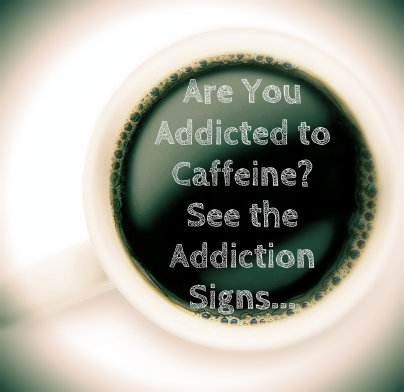 Caffeine is a natural substance, but it has no nutritional value. It is a stimulant that activates the brain and other parts of the nervous system. Most people use caffeine for its stimulant properties. You have that cup of coffee in the morning to help you wake up and maybe another one later in the day to get over afternoon drowsiness. While coffee may have some nutritional benefits, consuming too much caffeine through coffee or another source can be problematic.
Caffeine is a natural substance, but it has no nutritional value. It is a stimulant that activates the brain and other parts of the nervous system. Most people use caffeine for its stimulant properties. You have that cup of coffee in the morning to help you wake up and maybe another one later in the day to get over afternoon drowsiness. While coffee may have some nutritional benefits, consuming too much caffeine through coffee or another source can be problematic.
If you don’t get your fix you might experience withdrawal symptoms. These include drowsiness, nausea, irritability and headaches. Withdrawal is a classic sign of addiction. When you feel these uncomfortable symptoms, you take in more caffeine just to feel normal again. Experts debate whether or not you can really call this an addiction, as there are many differences between being hooked on caffeine and being hooked on harder drugs. A term that many experts will use instead of addiction is caffeine use disorder.
What Are The Signs Of Caffeine Addiction?
Withdrawal when you can’t get your caffeine fix is one sign of a caffeine use disorder, but it does not necessarily mean you have a serious problem. Another important sign of being addicted is being unable to stop using. If you want to cut back, but find you can’t, you may have a real problem with caffeine use. This is a sign of any addiction and it may mean that your caffeine habit is affecting you both physically and psychologically.
Doctors suggest that up to 400 milligrams per day is a safe amount of caffeine to consume. Another sign of addiction is if you are getting much more than this amount. Just having 500 to 600 milligrams a day can make you jittery, nervous, give you an upset stomach and elevate your heart rate. To give you an idea of how much you may be consuming each day, an eight-ounce cup of coffee contains between 95 and 200 milligrams of caffeine.
Kicking The Caffeine Habit
If you think you may be hooked, cut back on your caffeine intake before it takes over your life or harms your physical health. It’s so hard to stop drinking coffee because of those uncomfortable withdrawal symptoms. You may need to experience them to some degree in order to cut back, but it won’t last forever. Try reducing your intake a little bit every day. One way to do this and minimize the shock to your system is to replace one cup of coffee each day with a cup of tea. Tea has caffeine, but less than coffee. As you try to reduce your caffeine consumption, use healthy techniques to reduce stress, including exercise, meditation or yoga.
Caffeine is a real drug and one that can be habit forming. If you are taking a hard look at your habit, you might realize that it’s time to cut back. Start slow and reduce your intake over time. Replace your usual drink with tea or another beverage so that you still have the comfort of a warm cup. Before you know it, you will be free from your caffeine addiction.
12 Sep 2014
The Power Of Education During Recovery
Education is a powerful force for anyone. Learning more about the world improves your quality of life. Earning degrees can help you get a better job, earn more income, and increase your sense of self-worth. For an addict in recovery, these are all important factors. Education can help you learn about your disease, about yourself and your choices, and can occupy your mind and take the place of thoughts about relapsing. Embrace learning and education to strengthen your recovery and your resolve to resist relapse.
What Should I Learn About Addiction?
 Your education begins as you work through your addiction. If you are getting professional help from a therapist, drug counselor, addiction specialist or a team of experts at a rehab facility, you are already learning about your disease. You are also learning about yourself and your motivations. These experts can help you investigate your choices and examine your past to help you learn how the disease of addiction has been at work in your life. This personal education can be a powerful way to help you heal.
Your education begins as you work through your addiction. If you are getting professional help from a therapist, drug counselor, addiction specialist or a team of experts at a rehab facility, you are already learning about your disease. You are also learning about yourself and your motivations. These experts can help you investigate your choices and examine your past to help you learn how the disease of addiction has been at work in your life. This personal education can be a powerful way to help you heal.
As you go through rehab you should also learn about addiction from an external perspective. Read up on how the disease works, how the drugs you have been taking have affected your brain and body, and how other addicts have coped and been successful in recovery. This knowledge is power and will only strengthen your ability to quit and stay sober.
How Can Education Help Me After Rehab?
Education can also help you stay sober after you have completed your rehab program. Rehab is a time for intense self-learning and for devoting yourself to learning about addiction and the role it has played in your life. Once you are sober and are firmly in recovery, education can help you stay that way. One of the most powerful tools to help you avoid relapsing is finding something, or many things, to replace your habit. Some people turn to religion, others devote themselves to exercise, while some develop new hobbies or are focused on work.
You can use any healthful activity to replace your addiction, but one of the best is education. Pick up wherever you left off. If this means going back to high school, enroll in an adult education program or work toward your high school equivalency diploma. If you never made it to college, search for programs that meet your needs. There many choices. Start out at a community college to take a couple of introductory courses, or apply to a university and start working toward a degree. If you have a career in mind, look for programs and schools that will help you achieve your goals.
By focusing attention on education and learning, there’s less room for thoughts about relapsing. Education can’t solve all of your problems, but it can be a powerful way to help you improve yourself, enhance your life, and stay clean.
What If I Can’t Afford To Go To School?
There are plenty of programs and scholarships that can help you get to school if you want to pursue an education. Furthermore, many schools offer night and weekend classes so that you can work while you earn a degree. Also consider that supportive family members might be willing to help you as you set off on a new, healthier stage in your life. Do whatever you can to get yourself an education so that you can get your life back on track.
Learn More About Preventing Substance Abuse Relapse


